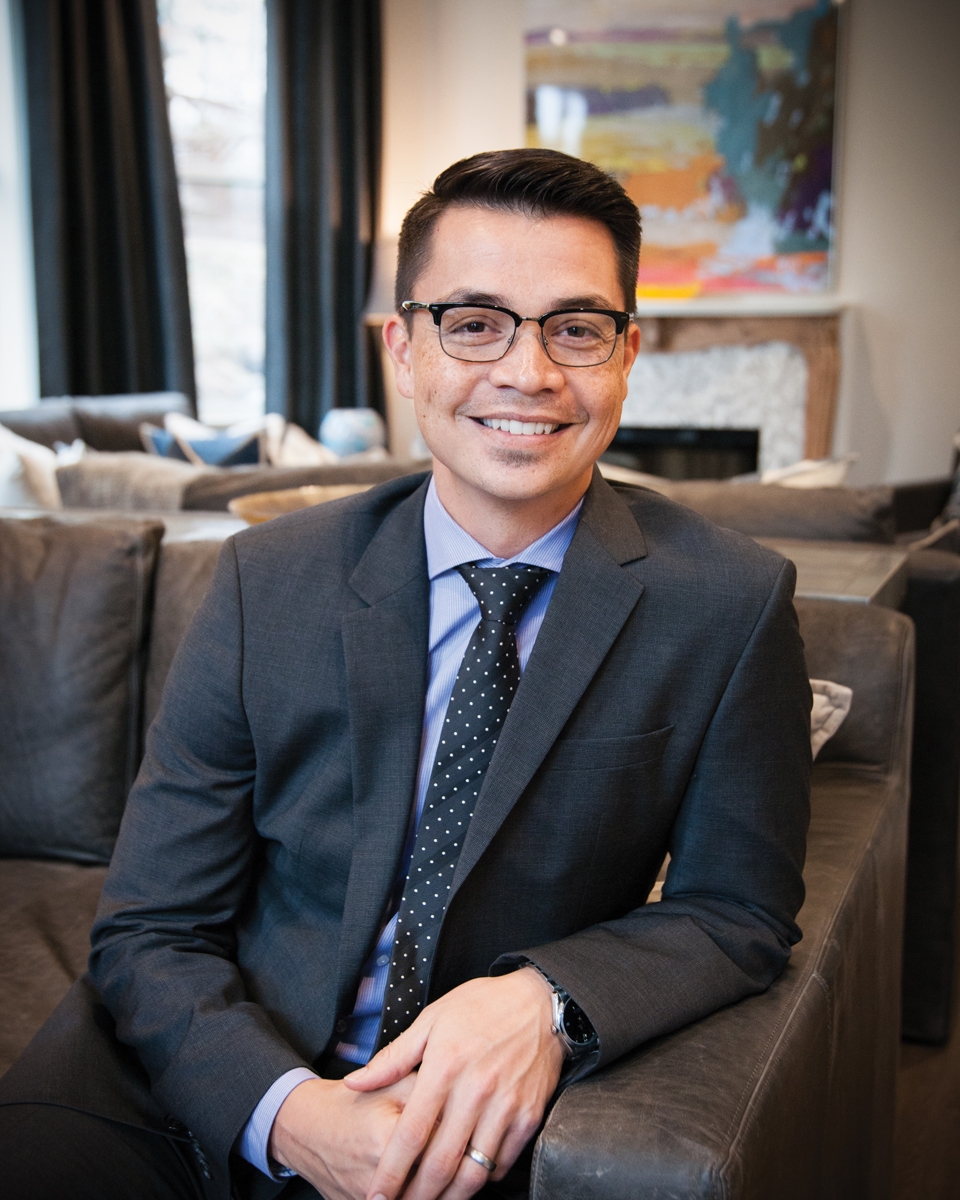
Homewood Health — Ottawa Life speaks high quality care with Homewood chief
Homewood Health is one of Canada’s largest and leading facilities for medical treatment of mental health and addiction disorders. With over 4,500 employees and clinical experts, they provide mental health and addiction services to help Canadians across the country live healthier, more productive and more fulfilling lives. Their services includes organizational wellness, employee and family assistance programs, assessments, outpatient and inpatient treatment, recovery management, return to work and family support services customized to meet the needs of individuals and organizations. Ottawa Life Magazine interviewed Dr. Carlos Lalonde, the Chief of Psychiatry for Corporate Services at Homewood Health.
Ottawa Life Magazine: Dr. Carlos Lalonde, as the Chief of Psychiatry for Corporate Services at Homewood Health, could you tell us a little bit about your position and role?
Dr. Carlos Lalonde: Day-to-day, I run the clinical practice and treat patients at one of our facilities called The Residence at Homewood and I am also part of the leadership team for our national network of Homewood Clinics and our new Western facility that is currently in development. I am also very much involved in education. I am an assistant professor at McMaster University and serve as the Regional Education Leader for the Psychiatry Residency training program at McMaster.
How long have you worked at Homewood?
I have worked at Homewood since 2010 when I started out at the Homewood Health Centre.
Why did you decide to work with Homewood Health? What speaks to you about its program?
I completed my postgraduate psychiatry training at McMaster. I was very fortunate to have had an opportunity during my residency to complete an elective rotation at the Homewood Health Centre. During this experience, I was extremely impressed by the high quality of care that patients were receiving, the expertise of the doctors and interdisciplinary staff, and the overall welcoming nature of the treatment teams, the leadership and the facility itself. It was very different from what I had previously experienced in the larger academic centres.
The history of the organization and their connection to research based best-practices was also a major factor in deciding to work with Homewood.
I also fell in love with the city of Guelph and at that point I knew that taking a position at Homewood was the right decision for me, both professionally and personally.
There is no question that opioid addiction is not a new issue, but it has recently become more widespread than ever. What impact do you think this issue is having on our society? What do you think is the main cause?
The impact of opiate and other types of addictions are monumental.
Of course, addiction can affect the individual by reducing their quality of life and their productivity at work, school and at home, and increasing risk of major mental health issues and the development of serious physical complications or death.
That person, though, does not suffer in isolation and we know that addiction has a dramatic impact on families, friends and other loved ones in addition to the societal impact in terms of financial costs associated with sick time, disability, crime and other areas including opiate monitoring and treatment.
It is extremely difficult to nail down a specific “main cause” for the rates of opiate and other addictions, but we know that the rise in opiate-related deaths by overdose, is likely directly related to the influx and availability of fentanyl.
A very large percentage of the opiates available on the streets such as “Oxys” are being cut with varying amounts of fentanyl or sometimes Carfentanyl which is far more potent and lethal. People generally do not know what they are ingesting and are often dying because of it.
In terms of the opiate addiction rates in general, I would say that there are many factors that contribute including easy accessibility of opiates on the street, the history of and continued over-prescription of opiates by physicians, the redistribution of prescribed opiates by patients, and the overall lack of readily available treatment resources.
Also, untreated or undertreated concurrent addictions or those combined with mental illness could be factors.
In addition, the stigma associated with having an addiction might prevent someone from accessing the much-needed supports.
Homewood Health is one of the premier mental health and addiction programs in Canada. What makes it different from other programs? What makes it stand out?
Homewood Health has a very long history of treatment excellence and the Homewood Health Centre has been leading mental health and addiction treatment in Canada for over 135 years.
We are a designated teaching site for the McMaster Medical School and Residency Training programs and have a very close affiliation with the Homewood Research Institute.
Our programs are medically based and physician-led and we have more than 20 sub-specialty addiction physicians and psychiatrists.
Something that sets Homewood apart is our evidence-based treatment philosophy that extends beyond the Health Centre for Homewood, and into other facilities of ours such at The Residence, Homewood 360dtx, The Homewood Clinics and our new western facility. Not to mention our national employee assistant programs for mental health and addiction.
With this continuum of resources, we can offer a variety of treatment options ranging from regular or intensive outpatient treatment to an inpatient admission – something no one else in Canada can provide.
We also can provide consultations, monitoring and follow-up in any community in Canada when you factor in our network of therapists and access to videoconferencing or telemedicine services.
What is the philosophy behind Homewood Health's treatment? I know it's based on the abstinence model. Can you tell us more about that?
We offer a bio-psycho-social-spiritual model of care for people suffering from a variety of addictions and mental health issues. Traditionally, in terms of our addictions program, we offer treatment to those who are committed to working towards abstinence.
That being said, at our in-patient facilities we work with people where they are at and help taper them off of various medications and continue or commence Opiate Replacement Therapy with methadone or buprenorphine.
Going beyond the Smoke Free Ontario initiative, Homewood facilities are now a designated tobacco-free facility as well, so if you are being admitted to our in-patient programs, you need to be prepared to abstain from tobacco as well.
In addition to the physical health benefits, there is also evidence to support that stopping smoking can significantly improve success rates in abstaining from opiates, alcohol or other substances.
Why does Homewood Health believe that the abstinence model is the best way to approach this issue and the most effective form of treatment?
There is ample evidence that complete abstinence is the ideal in terms of minimizing the negative physical and mental health complications of ongoing drug use.
With respect to our inpatient addictions programs, we have been an abstinence-based model that encourages participation in 12-step or similar programming.
That being said, we know that for people that have a severe opiate addiction, the use of Opiate Replacement Therapy (ORT) is an effective and safer option for some cases and we do continue and sometimes start ORT during an inpatient-addictions stay.
We really try to work with people where they are at and we also recognize that importance and need for certain harm reduction strategies and initiatives through other community agencies for those people that are not able or willing to engage in an abstinence-based approach.
In terms of harm reduction verses abstinence, it’s also important to distinguish the difference between those that have a substance abuse or misuse issue versus an addiction or dependence — with addiction, you have a medical condition, a brain disease. And although some people with abuse or misuse issues may be suitable for a harm reduction approach, for those who are truly dependent abstinence is the most evidence-based, proven approach.
What are some of the strategies that you use at Homewood Health to increase success for your clients?
In addition to helping people develop the skills necessary to deal with their main addiction, we also offer other evidence-based treatments in areas including mindfulness, Cognitive and Dialectical Behavioral Therapies, grief and loss, and other therapies.
We identify and treat co-occurring addictions, and concurrent mood or anxiety disorders as we know this can improve success rates and quality of life.
Co-occurring or concurrent conditions simply means that someone might be suffering from multiple conditions at once, including mental health and addictions.
We also provide guidance and support to families and do our best to connect our patients with adequate aftercare support in their home communities.
We also strongly encourage ongoing frequent attendance at 12-step or similar groups with a sponsor to have that additional layer of support particularly during the initial months back at home. Local patients graduating from our inpatient addictions program also attend one year of relapse prevention groups on a weekly basis through our “Phase 3” program.
At Homewood Health, you offer inpatient treatment, clinics and recovery management, among others. Why do you think that these are the most effective forms of treatment?
At Homewood, we offer a true continuum of mental health and addictions services available across Canada.
With this approach, we are able to offer everything from acute inpatient care to outpatient groups or individual sessions at our clinics to counseling services though our employee assistance programs.
Through our network of therapists across Canada and our ability to utilize advances in telemedicine options we are able to extend our services to even the smallest of communities.
The Ontario health ministry recently pledged $222 million in the next three years to fight addiction and overdose. Ontario is also spending $15 million to improve the prescription of opioids and train health-care providers to manage pain in a way that could stem addiction to powerful painkillers. How does Homewood Health feel about this? Is this enough to be effective? What else do you think could be done, if anything?
The investment is good, but it’s not enough.
There needs to be an ongoing commitment to funding and programs that have significant long-term impact. There will be ongoing need for more inpatient funded beds, more intensive outpatient addictions support, continued monitoring of prescribing practices of opiates, more research on treatment, prevention efforts and harsher consequences for those importing and trafficking opiates.
There is no silver bullet solution – it’s a complicated issue.
When you look at that specific group of people that have concurrent pain and opiate addiction, we need to do a better job from the beginning at addressing their pain with non-opiate medications and other evidence-based non-pharmaceutical treatment options. This starts with educating practicing physicians as well as medical students and resident physicians early on and maybe we move to include this education a mandatory part of everyone’s training.
The same goes for treatment of other concurrent mood and anxiety disorders. The more we do to address other underlying conditions in addition the core addiction itself, the better the outcomes will be.
Right now, the crisis we’re seeing in Ontario is just the tip of the iceberg. Ontario is in a position to learn from other western provinces that were impacted by this crisis before us.
We need to learn from their experience and look at what are they doing that’s working or not working and incorporate that knowledge into our plan.
We need to understand how do we work as a country to address this ongoing issue in a way that will result in longer-term, sustainable success.
What are Homewood Health's goals for the future – both short term and long term?
To continue being the leader in the delivery of mental health, addiction and trauma treatment across Canada. We want to assist Canadians in letting go of the stigma that is attached to getting help for mental health conditions and addictions while at the same introducing them to the many options available to them that allow access to appropriate, professional treatment that meets their clinical and lifestyle needs.
In fall of this year, we’re opening our newest inpatient facility on Vancouver Island to address the high needs for treatment help on the west coast. We’re working very closely with the local First Nations as well as partners in the health care community in developing programing suited for the region.










